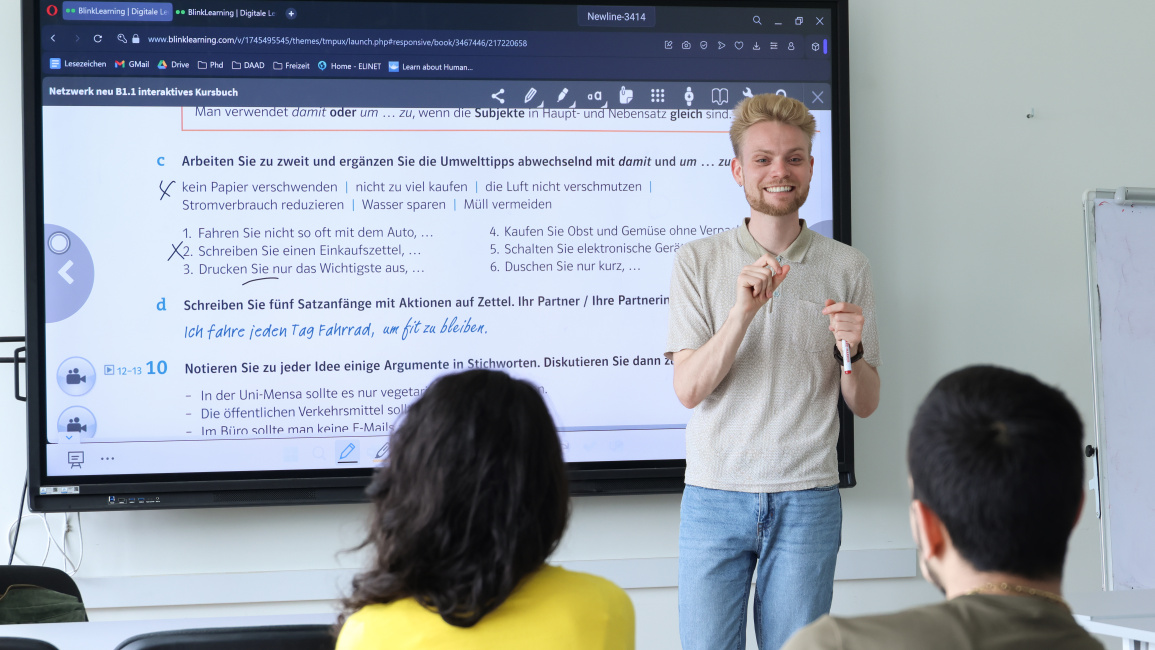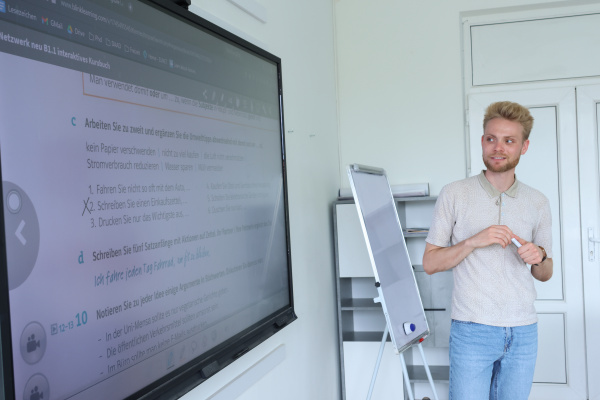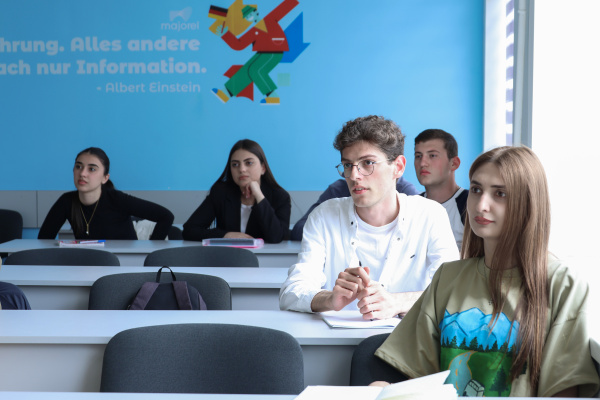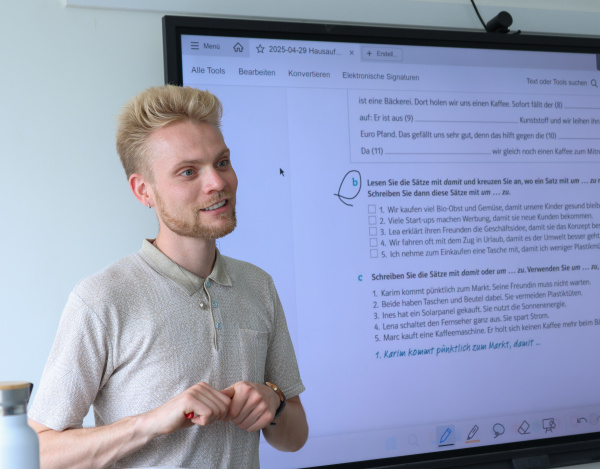May 12, 2025 | 14:21
Education
International cooperation
I would advise my colleagues living abroad to work at YSU: lecturer from Germany
Johannes Gereons, who came to Armenia from Germany, has been teaching since 2024 in the Chair of German Philology at YSU Faculty of European Languages and Communication. Fluent in several languages—including German, English, Bosnian, Serbian, Croatian, and Arabic— Gereons focuses much of his teaching on developing students' verbal communication skills. He emphasizes that mastering a foreign language is impossible without regular self-study and consistent review of previously learned material.

At YSU, Johannes Gereons serves as a representative of the German Academic Exchange Service (DAAD). He graduated with distinction from Bielefeld University (Germany), earning bachelor’s degrees in both "German as a Foreign and Second Language" and "Linguistics." He also holds two master’s degrees: one in "German as a Foreign and Second Language" from Leipzig University and another in "Peace and Conflict Studies" from University College Dublin (Ireland).
"I first visited Armenia in 2023 to participate in a summer academy organized by DAAD, which focused mainly on political topics. It was then that I 'fell in love' with Yerevan and decided to apply for a lecturer position," Gereons recounts. "Although there are several universities in Yerevan, my Armenian friends recommended YSU specifically," he adds. His current contract is for two years, but he notes that it is renewable, meaning he is likely to spend the next four years at YSU.

"In the Chair of German Philology, every course is related to German language and Germany—linguistics, literature, culture, politics, and more. My teaching methods depend on the nature of the specific class," says Gereons. "I can usually assess the quality of a lesson by the pitch of my voice, as sometimes I lose my voice after classes," he says with a smile.
He notes that when he feels the need for a cup of tea after a lesson, it means the lesson did not go as he had intended.
"That usually means I’ve spoken more than the students. Developing students' verbal communication skills is very important to me, so I focus most of the lessons on speaking practice. I use audio and video files, along with visuals like pictures. However, to master a language, one needs to keep studying and practicing regularly. It's vital to show students how important independent work is," he concludes.
Johannes Gereons has been impressed by YSU students' curiosity towards the German language, as well as their respectful demeanor. In this context, he notes: "I can’t recall a single instance where students have challenged me or argued back. Their respectful attitude makes working with them easier and motivates me even more."

Comparing the opportunities available to students at German universities and those at YSU, the young lecturer highlights that, unfortunately, it is much harder for Armenian students to travel to European countries and participate in various academic programs—often due to visa-related issues. "In Germany, students who are citizens can go abroad to continue their education much more easily, and it’s not nearly as costly for them," he points out.
Having worked at YSU for about nine months, Gereons says he’s been impressed by the lecturers' depth of knowledge, their friendly approach to working with students, and their modern teaching methods.
The young German studies expert has taught and worked as a language assistant in various countries, including Jordan, Oman, Serbia, and Malta.
"I’ve lived in different places, and I enjoy that experience. Of course, moving to a new place always comes with its challenges, but those challenges teach you something new. Let me share a funny story. A few weeks ago, I didn’t have hot water. I thought the issue was with the gas boiler, and I tried to fix it—but nothing worked. Later, I found out that in Armenia, you pay separately for gas consumption and service. I had only been paying for the gas I used," he shares with a smile.
Having fallen in love with Yerevan, Gereons says he hopes to see the city center become a place for walking rather than car traffic.
"There are far too many cars in Yerevan, and on many streets, the time given for pedestrians to cross is extremely short. I believe the city center should be a space for people to stroll, not just a place for driving," he says. He adds that while visiting the National Gallery of Armenia, he noticed paintings of Yerevan that included a tram—something no longer present in the city: "I would love to see that mode of transport return to Yerevan. In general, the city's air pollution saddens me a bit."

Gereons has traveled to various cities and cultural landmarks across Armenia, including Gyumri, Goris, Sevan, Garni, Geghard, Vanadzor, Stepanavan, Dilijan, and Etchmiadzin.
"I was deeply impressed by the Symphony of Stones in Garni—it's a natural phenomenon so stunning it almost seems unreal. And Lori is my favorite province: vivid green fields framed by high mountains and gorges, made even more beautiful by rivers and lakes. I’ve taken in those breathtaking views while listening to the music of pianist Tigran Hamasyan," he shares, noting that he also enjoys contemporary Armenian singers.
"I’m particularly fond of Komitas’s songs—especially as performed by one modern Armenian singer, Arpi. At first, it was the music that drew me in, but over time, I began to understand the lyrics as well, since I’m learning Armenian. I really like how Armenian sounds," he adds, pointing out that he sees similarities in word formation between Armenian and German.
Johannes Gereons is convinced that each of his students has a bright future ahead. He says he would advise his colleagues living abroad to visit Armenia—even if only for a short time—and to consider working at Yerevan State University.

